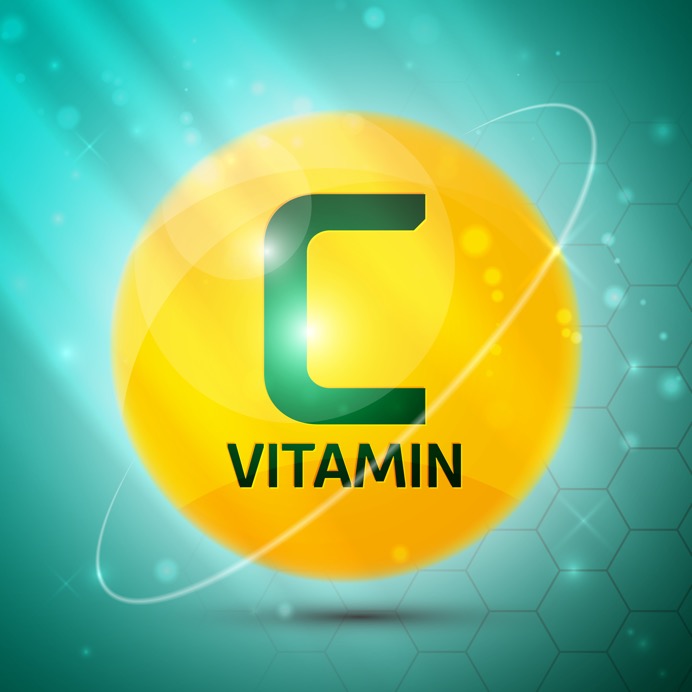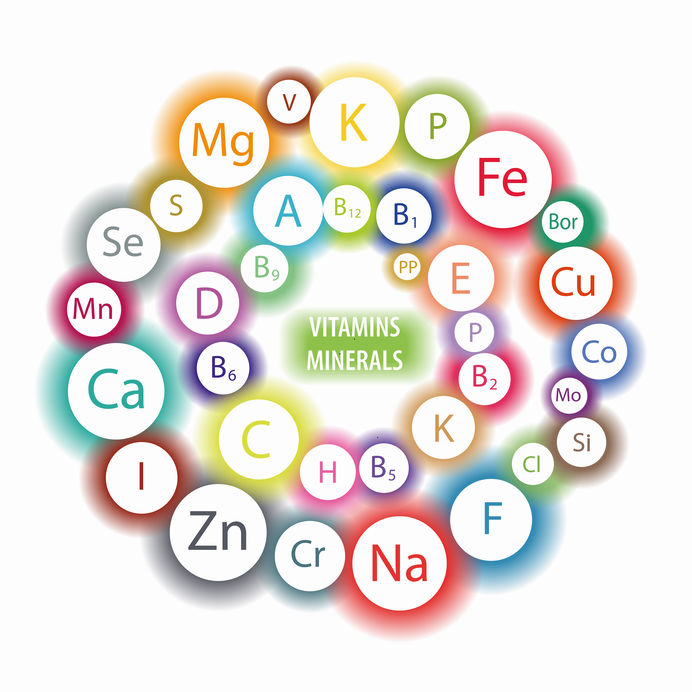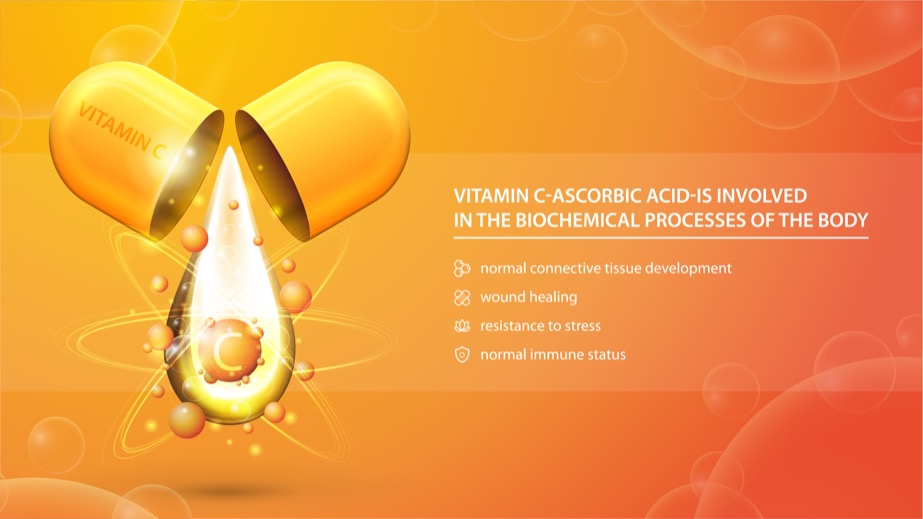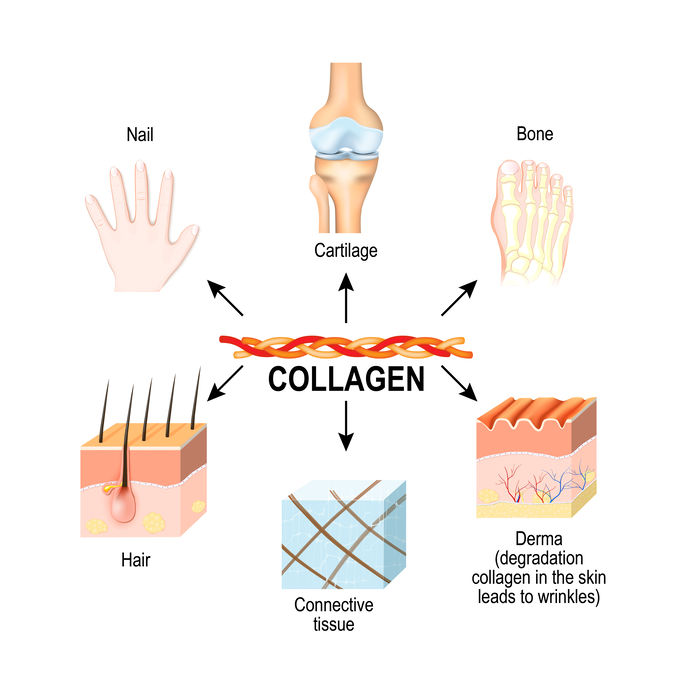
Let's give Vitamin C Some Attention!
We’ve talked about Vitamins A, B, and D and now it's time for Vitamin C.

Vitamin C is a water-soluble nutrient found in some foods. In the body, it acts as an antioxidant, helping to protect cells from the damage caused by free radicals. Free radicals are compounds formed when our bodies convert the food we eat into energy. People are also exposed to free radicals in the environment from cigarette smoke, air pollution, and ultraviolet light from the sun.
We require Vitamin C to help with many processes in our bodies. Did you know that we, unlike most animals, don't produce Vitamin C in our bodies? That means it's an essential dietary or dietary supplement component.
Do you ever ask yourself, “Why should I take a vitamin or mineral?

We know that a lot of people may ask that question.
A favorite answer (like this one from Mayo Clinic Health System) is this:
Many vitamins and minerals are essential, contributing to normal functioning of the human body. While dietitians recommend most vitamins and minerals be obtained through food sources, this isn’t always possible. For example, if you don’t consume enough fruits, vegetables or other healthy foods, a vitamin may be helpful. Other instances where a vitamin could be beneficial are if you have certain food allergies or intolerances, or become pregnant.
What's the scoop on Vitamin C?
 Vitamin C, or ascorbic acid, is a water-soluble vitamin. This means that it dissolves in water and is delivered to the body’s tissues but is not well stored, so it must be taken daily through food or supplements.
Vitamin C, or ascorbic acid, is a water-soluble vitamin. This means that it dissolves in water and is delivered to the body’s tissues but is not well stored, so it must be taken daily through food or supplements.Vitamin C, which is also known as L-ascorbic acid and L-ascorbate, is a nutrient our bodies need to form blood vessels, cartilage, muscle and collagen in bones.
Vitamin C history and benefits
Until the end of the 18th century, many sailors long ocean voyages had little or no vitamin C intake. Because of that many contracted or died from scurvy which is a disease resulting from a deficiency of vitamin C. Without Vitamin C, collagen made by the body is unable to carry out its function and, in addition, several other enzymes in the body don't operate correctly. During the mid-1700s, Sir James Lind, a British Navy surgeon, conducted experiments and determined that eating citrus fruits or juices could cure scurvy, although it wasn't proven that ascorbic acid was the active component until 1932. Today, vitamin C deficiency and scurvy are rare in developed countries.

Vitamin C also helps promote healthy teeth and gums, aids in the absorption of iron, helps wound healing, and strengthens blood vessel walls. In addition, it also helps make several hormones and chemical messengers used in the brain and nerves. And it helps make collagen!
The importance of Collagen

Collagen is the main component of connective tissue. It's one of the major building blocks of bones, skin, muscles, tendons, and ligaments. It's also found in many other body parts, including blood vessels, corneas, and teeth. Collagen provides structural support to tissues and plays important roles in cellular processes, including tissue repair, cellular migration, a process necessary for tissue maintenance, cellular communication and immune response.
Food Sources of Vitamin C
 Fruits and vegetables are the best food sources of Vitamin C. Some good sources of vitamin C include:
Fruits and vegetables are the best food sources of Vitamin C. Some good sources of vitamin C include:
• guava
• red and green peppers
• oranges and orange juice
• grapefruit
• kiwi
• strawberries
• tomatoes and tomato juice
• spinach and other green, leafy vegetables
Two fruits you may not be familiar with have the highest Vitamin C contents of all foods. The Kakadu plum is Australia's most potent superfood. It has the highest recorded levels of vitamin C of any fruit in the world.
Camu camu, also called cacari, a shrub found in flooded areas of the Amazon rainforest, is also known to contain very high levels of Vitamin C. The levels of vitamin C in the berry are contingent on the growing region in the Amazon and growing conditions like soil composition and humidity levels.
You do you. And we'll help.
 There's no one style of eating and/or getting your nutrients that works for everyone. However, you can only get vitamins through food and supplements.
There's no one style of eating and/or getting your nutrients that works for everyone. However, you can only get vitamins through food and supplements.
You can help by eating nutritious foods. And we can help by offering a wide range of products that are designed to support your health by providing essential vitamins, minerals, and oils to meet your body’s daily nutritional needs.
Among the time-tested Vitamin C nutritional supplements we offer are Esterified C, a hypoallergenic buffered Vitamin C for Immune and Collagen Health Support, and Vitrex C, containing minerals and bioflavonoids to help support the effectiveness of Vitamin C, by Dynamic Nutritional Associates, and Znac, a complex formula combining Zinc, Vitamin C, Vitamin A and other nutrients to help support and maintain the body’s strong healthy immune system, by Professional Botanicals.
Multivitamins containing C include MultiMedica for Women and MultiMedica for Men by NuMedica, Multi Plus by Dynamic Nutritional Associates , and Ultimate Vita-Min by Professional Botanicals.
Feel better the natural way...with Naturally Botanicals.
_______________________________________________________________________________________________Note: The content of this article, and additional content on this website, are for informational purposes only and are not intended to be a substitute for professional medical advice, diagnosis, or treatment. Always seek the advice of a physician or other qualified health provider with any questions you may have regarding a medical condition. Never disregard professional medical advice or delay in seeking help because of something you read here on this website.



